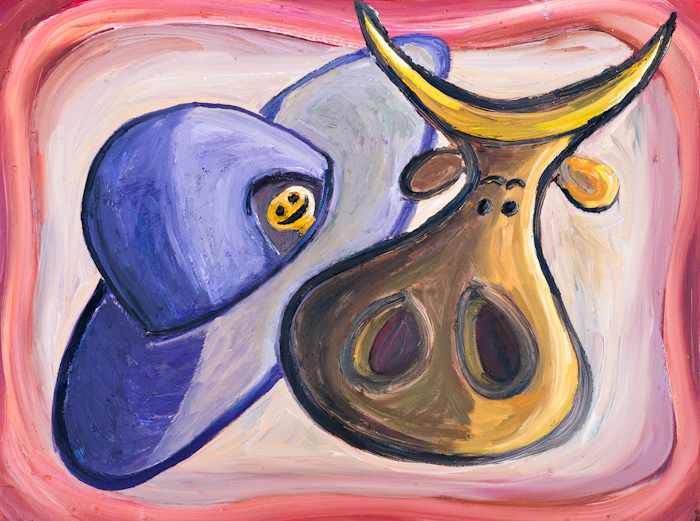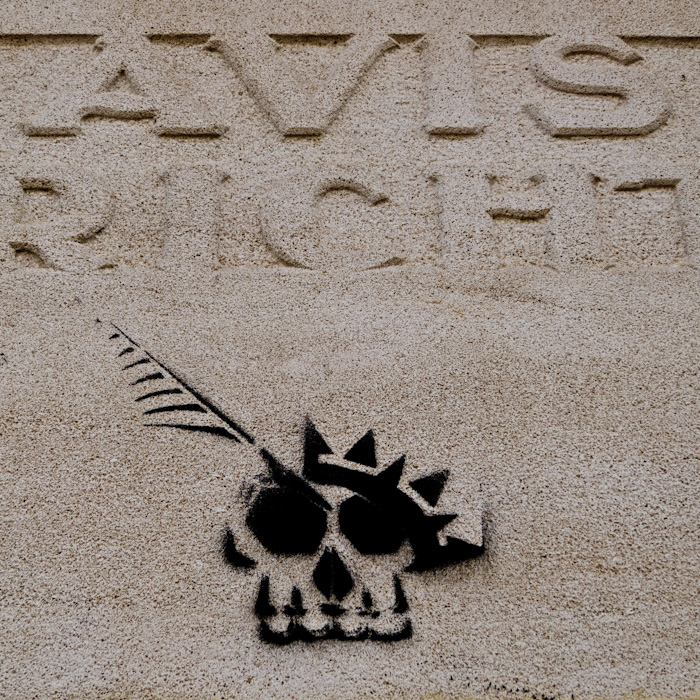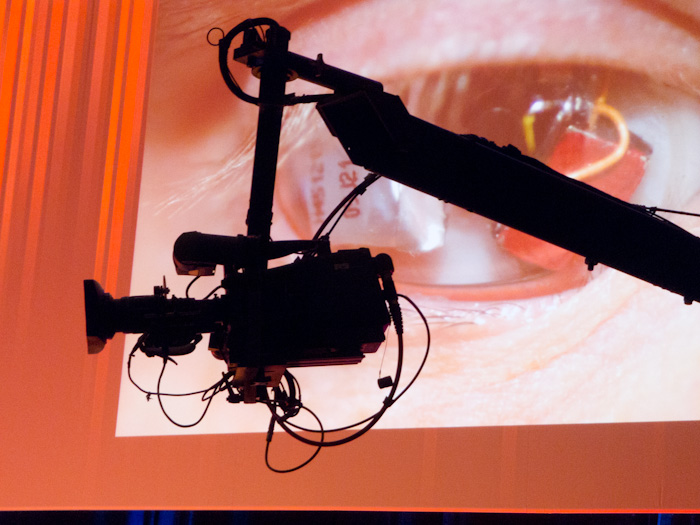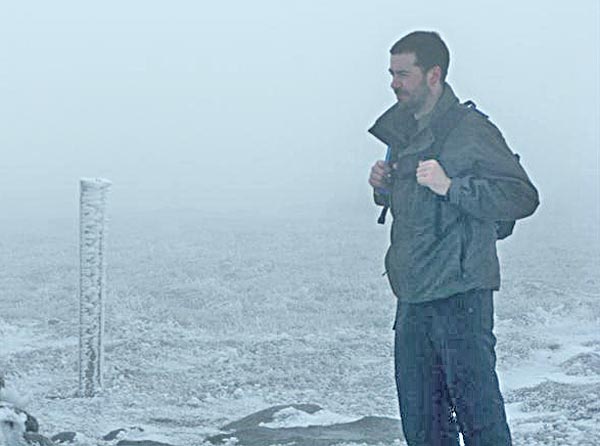
A Bigger Piece of Nothing
by Martin Hayes

They arrived at the derelict building just as the sun was going down behind the low, barren hills. The wind had blown hard all day and they knew that they were being followed so they had not stopped at all since their meagre and hasty lunch eaten cold from tins in the hollow belly of a disused drainage ditch not far from the state line.
That had been five hours ago. Now they were tired and hungry; some of them were crying, the children trembled in their parent’s arms, shivering as the cold desert air crept in across the darkening landscape.
Bill was thirty-nine and even though the group offered him kindness and love and never made him feel anything other than welcome, he could do nothing to fight off the dull ache of loneliness that washed across him at that moment. He knew the feeling well. It was made worse by the cramped conditions.
There were twenty-eight of them: seven men, fifteen women, and six children; all sheltering in a small tin-roofed miner’s shack about one and a half miles from the border with Mexico.
It was the kids that did it.
Bill wasn’t used to being around kids anymore. Sitting there on the damp dirt floor with his back against the stone wall, he stared across the room at a six year old boy called Donald. And as he did, the boy’s face seemed to shimmer and when it settled back to stillness he was looking at his own son, now three years gone. An innocent boy, taken the same day as his mother. It filled Bill with a strange mix of weariness and joy. Weariness because it had been three years since he’d seen his son’s face stare back at him, and joy because it would not be much longer now.
His wife and his son – the three of them would be reunited soon.
He felt a shiver run down his back. He shook his head and when he looked back at the boy, his son’s face had vanished. Donald looked across at him and forced a smile. The boy was scared. Bill could see it in his eyes. And he couldn’t blame him. Bill was scared too.
They had come too close to fall at this final hurdle. All that was left was to await the dawn. Once the sun’s rays broke over the flat desert floor they would be safe. And the other ones would come.
They had been on the run for almost 24 hours. The authorities had raided their property just after dawn, some bullshit story about “links to domestic terrorism.” The word “cult” had been used more than once.
Federal agents spent a full day searching the remote compound before taking computers and files and some large crates from the storage sheds away in unmarked black vans. They had looked positively disappointed when they found no weapons and no one was arrested.
The group fled that night, while they still had the chance.
They travelled by foot, as that would be the last thing the police would expect them to do considering the terrain and the fact that they had several young children with them.
A couple of the men knew the area well and they were able to use old hunting trails and dry river beds as pathways. They carried what food and water they could in rucksacks and they travelled mostly by night and early morning, thereby avoiding the scorching midday temperatures.
Once the group’s disappearance was noticed the police wasted almost a full day setting up road blocks and searching cars. It was only at 5pm that that they started to search the desert.
At one point the group were forced to lie down and cover themselves in sand and debris as police helicopters passed nearby, but that was the closest they had come to being captured.
A young woman named Suzie knelt down beside Bill and offered him a slice of bread and a blue plastic cup full of cold beans. He accepted them with thanks and savoured that frugal supper perhaps more than any meal he had ever eaten.
When he was finished he pulled the canteen from the pouch on his belt and let the cooling water sluice down his throat. It was warm and stale but he didn’t mind. He closed his eyes and leant back against the wall and there, behind his eyelids, he saw his son’s face once more. Not long now, he thought.
The plan was simple.
The pick-up point was less than an hour’s walk away. So long as they were there by dawn then all would be well. It would probably be at least half an hour after sun up before the police resumed their search. And they would be long, long gone by then.
At about midnight, when the children and most of the parents were asleep, some of the men called Bill over and they looked at a detailed map of the area by the glow of a small flashlight.
The pick-up area was marked with a red cross. It was a large circular clearing, about one hundred feet in diameter, a mile and a half due south from their current position. A narrow creek ran past it and to the east, on the circle’s perimeter, a tall, thin spear of rock jutted up from the desert floor.
It would not be hard to find.

One of the younger men asked nervously why they didn’t just go there now, why were they waiting until first light when they could just leave now and escape this awful place once and for all? It would only take an hour to get there, even in the dark. They could meet with the other ones that very night, and travel to the far-off places. Why should they suffer in exile and abandonment for one hour longer than was necessary?
Samuel, who was the senior man in the group (though not the leader because they did not have a leader) explained that they were extremely lucky to have made it this far without being captured, and that it would be stupid and foolhardy to change the plan now, at the last minute. He urged him to have patience.
The young man apologised and said that he would sit with his wife, and await, anxiously, the morning. As he turned Samuel reached out and clasped him by the shoulder. He spun him around and hugged him, whispering soothing words into his ear. No one knew exactly how Samuel had come by his information. Certainly Bill had never asked him. But he had heard a young girl query him once and Samuel had told her in a sweet and fatherly manner that she should study hard at her math lessons, because numbers were the key to the universe.
Bill tiptoed through the rows of sleeping bodies and stepped outside. It was cold and he regretted not bringing his heavier jacket. He could have broken down there, alone in the ink-black night, but he rallied his inner strength and fought back the tears that wanted to come. He would be strong for them. It wouldn’t be long now. He looked up to the star-filled sky and made silent promises and pacts to himself and to the universe, but when he saw the streak of a meteorite blaze towards the horizon he could no longer hold back the tears. People smarter than Bill said that the universe was infinite – and if so, they must be out there somewhere.
Bill slept sitting up that night and he dreamed about his son and his wife. Why did they have to be parted? And where had they gone?
He dreamed of touching her and holding her and seeing her eyes once again, and of walking with her, that was what he wanted most of all, to just walk hand in hand with her along a quiet beach at dusk with their son running ahead of them, looking back over his shoulder and smiling. Bill dreamt about this and he wondered why the world had to be so hard and so cruel. It served no one any good. It caused only pain and hardship and suffering.
It was still dark when Samuel woke them.
They drank from their water bottles and ate what little bread they had remaining and then they set off for the cross-over point.
As he stepped out into the cold predawn air, Bill’s heart sang at the sight of the reddening sky above the eastern horizon.
They travelled slowly, deliberately. A misplaced step, a broken ankle, a snakebite – they had come too far and through too much for any of that nonsense now.
Bill saw the child, Donald - he was being carried by his mother a little further up the snaking row of people. The boy smiled at him over his mother’s shoulder, and Bill had to fight back tears again.
A small cheer went up from the group as they crested the slope and looked down at the circular clearing and the narrow spear of rock jutting from the desert floor. No weeds or scrub grew within it; and the rock that made up the clearing’s floor looked smooth, strangely polished. There was much whispering and laughing. One of the children gasped, “Mommy, is that it?”
They stood there for almost a full minute, many of them unable to believe their eyes. It was just as Samuel had said it would be. Silence engulfed them, anticipation turned skin to gooseflesh, and then, as one, they walked down into the circle.
In the south-west, low on the horizon, huge black thunderheads swelled and churned against a dark but lightening sky. “They’re coming this way!” someone shouted, “They’re coming! They’re coming!”
And they were.
The group formed a wide circle at the centre of the clearing. Some began to cry. The young man who had questioned Samuel the previous night hugged his wife; a big, tight bear hug that lifted her clean off of the ground.
“What will it look like, Samuel?” he asked.
Samuel did not reply.
“Will it be round, like they are in the movies? Will the engines make a lot of noise? What will the air be like? Will we be able to breath without suits?”
Samuel held his hands aloft, a sign which everyone took as a signal to be silent, to relax, to calm down.
But it had been so long and they were so close now that the people couldn’t help but whisper among themselves. A child, cold in the predawn air, was pulled closer to her father; he rubbed her back and arms and told her that this would be a moment unlike any other.
“Will it be warm on the spaceship,” she asked.
“Yes, sweetheart,” he said, “Oh my, yes.”
Samuel stood with his back to the rock as the sun broke over the horizon. Its brilliant orange glow washed across the clearing. Only he was untouched by the sun’s warming rays as the light was split in two by the great promontory. He stood there, still in night, as a wide and easy smile spread across his face.
The thunderheads continued to ferment as they rolled across the sky. They seemed to be moving impossibly fast. A brilliant streak of lightening scorched the ground four hundred yards to the west. Donald let out a shriek and clung to his mother’s leg. They looked expectantly at the heavy black clouds. Each one of them wanting something to appear from the murky gloom – the smooth sheen of a highly polished and perfectly curved saucer, or the angled precision of a razor-sharp triangular ship.

Bill was the first to notice it. In the centre of the clearing, the air began to stretch. He blinked and rubbed his tired eyes but this strange imperfection was still evident when he reopened them. Samuel smiled over at him. And as the anomaly grew larger, it soon became impossible to miss.
It was as though there was too much nothing there. As though there was a bigger piece of nothing that wanted to explode into the empty air above the clearing. And then it became visible, slowly flickering into being. A shimmering, liquid mess of unmistakably biological fluid. It swelled and spilled and as it grew the crowd began to step back to give it room. It was white in colour, with pale streaks of red, and it took less than thirty seconds for it to take its perfect, solid form. It was, unmistakeably, saucer shaped. Perhaps one hundred feet across. And as the clouds spilled their guts, Bill could see the rain drops running down the marbled skin.
The rain ran down Bill’s face too, washing away the tears. It was at this point that Bill realised what an utter fool he’d been. For he had never believed any of it. Not really. In his secret place, where he had locked away all the bad thoughts that had come with increasing frequency since the loss of his family, Bill imagined, and hoped, that Samuel was bug-fuck crazy. This wasn’t how it was meant to go at all. Samuel was supposed to bring them out here and make them drink cyanide, or overdose on sleeping pills or something. He was supposed to be Bill’s way out of all this pain.
Samuel gathered them into a small crowd. They huddled in the rain, watching the saucer as a thick flap of skin peeled back. No one was very much afraid as they climbed inside.
And then it was as though all the other people went away. It was just Bill and a small orb of blue-green light that pulsed whenever it made Bill laugh. Which was a lot.
Bill asked the orb what there was before the universe existed. And he laughed when he got his answer. He asked how many universes there really were. And his whole belly ached as the tears ran down his face. He asked the orb when he would be with his wife and son again.
He was guided to a large room with a domed roof made of pale red skin. He could see translucent veins as thick as his thigh winding here and there, throbbing with the flow of living propellant. A large mound of puffy moist flesh, ten feet high at least, stood at the centre of the room. Bill asked the orb what it was and he laughed loudly again when the reply came.
At first he couldn’t make out what it was that he had been told to look for. But when he began to walk around the slowly throbbing mound, it didn’t take him long at all to find the waist-high cleft in the moist flesh.
Bill knelt down and looked at the blue orb one final time. He smiled and then he pushed his way inside. And the further in he went, the further away the room in the saucer in the air in the desert in the world in the universe became. Soon, there was nothing at all. No flesh. No sense. No Bill?
He felt like he had crawled for an awfully long time. He was tired and just about to give up hope, to cry out for the orb to make him laugh again, when he realised that he was no longer crawling at all. He was not anything he could describe.
Adrift, Bill saw time stretching away from him, the future and the past, all the futures and all the pasts, a twisted Möbius strip of tangled continuities. He concentrated and realised that he could see the tendrillar arm of a spiral galaxy reaching out as if to touch him, and within it, the brightly glowing embers of dead stars, outshone only by the mewling flashes of their newborn brethren.
He didn’t know what he was. He only knew that they were there with him. So close that he could hear their thoughts. And that was just fine.
About the Author

Photo by Gerry Hayes
Martin Hayes lives in a small town on the east coast of Ireland. He is currently working on the final few pages of Aleister Crowley: Wandering the Waste, a graphic novel based on the life and times of The Wickedest Man in the World. Written by Martin, with art by his old pal Roy Huteson Stewart. Only two years later than planned, having suffered through the bile-filled collapse of the original publisher, the book is now due out in late 2012, or thereabouts. Given the release date, Martin really hopes that those Mayan bastards were wrong. He works in a shipyard and can be found at www.paroneiria.com
Post a comment on this story!